Greece › Delphi Tours & Attractions
By Santorini Dave
See Also
- The Best Hotels in Delphi
- Best Restaurants in Delphi
- Visiting Delphi from Athens
- Mainland Greece Travel Guide
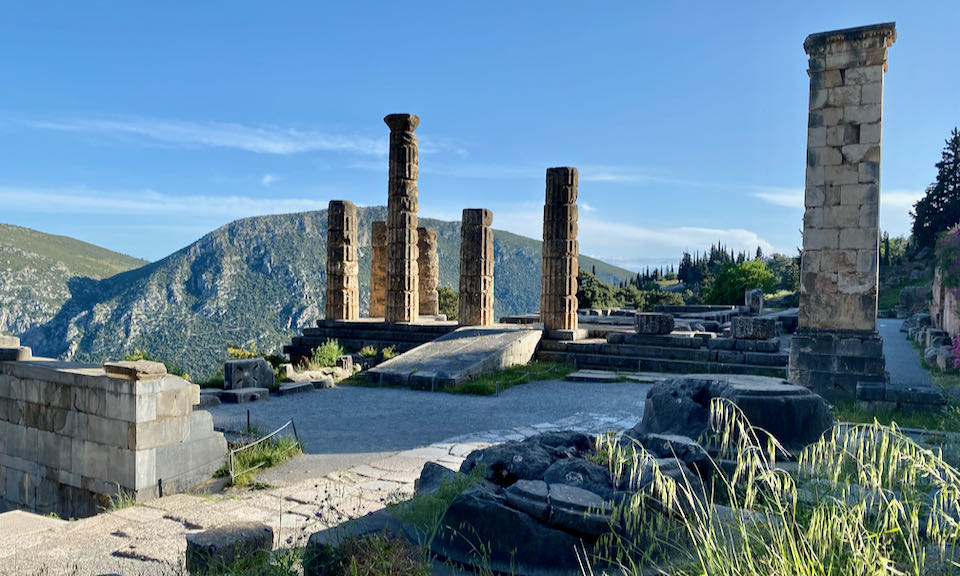
The Temple of Apollo at Delphi. A guided tour of the museum and archaeological site is highly recommended.
Delphi Basics
- Delphi is a charming Greek town located on the southwest slope of Mount Parnassos. It is small and easily traversed on foot. The Delphi archaeological sites and museum are within a 20-minute walk from all hotels, and a car isn’t necessary while staying in town. Most hotels, shops, and restaurants in Delphi are located on two parallel main streets with views over the Pleistos River Valley.
- Best Delphi Tour: Local guide Georgia Hasioti.
- Best Day Tours to Delphi from Athens: Ammon Express and Key Tours (small group) and My Athens Transfers (private).
- Best Hotels in Delphi: Kastalia Boutique Hotel • Acropole • Fedriades
- Best Restaurants in Delphi: To Patriko Mas (great view and rustic cuisine), Taverna Vakhos (innovative local menu, great beer/wine/spirits, good for vegans & sensitive diets), and Souvlaki Dionisis (cheap and excellent gyros).
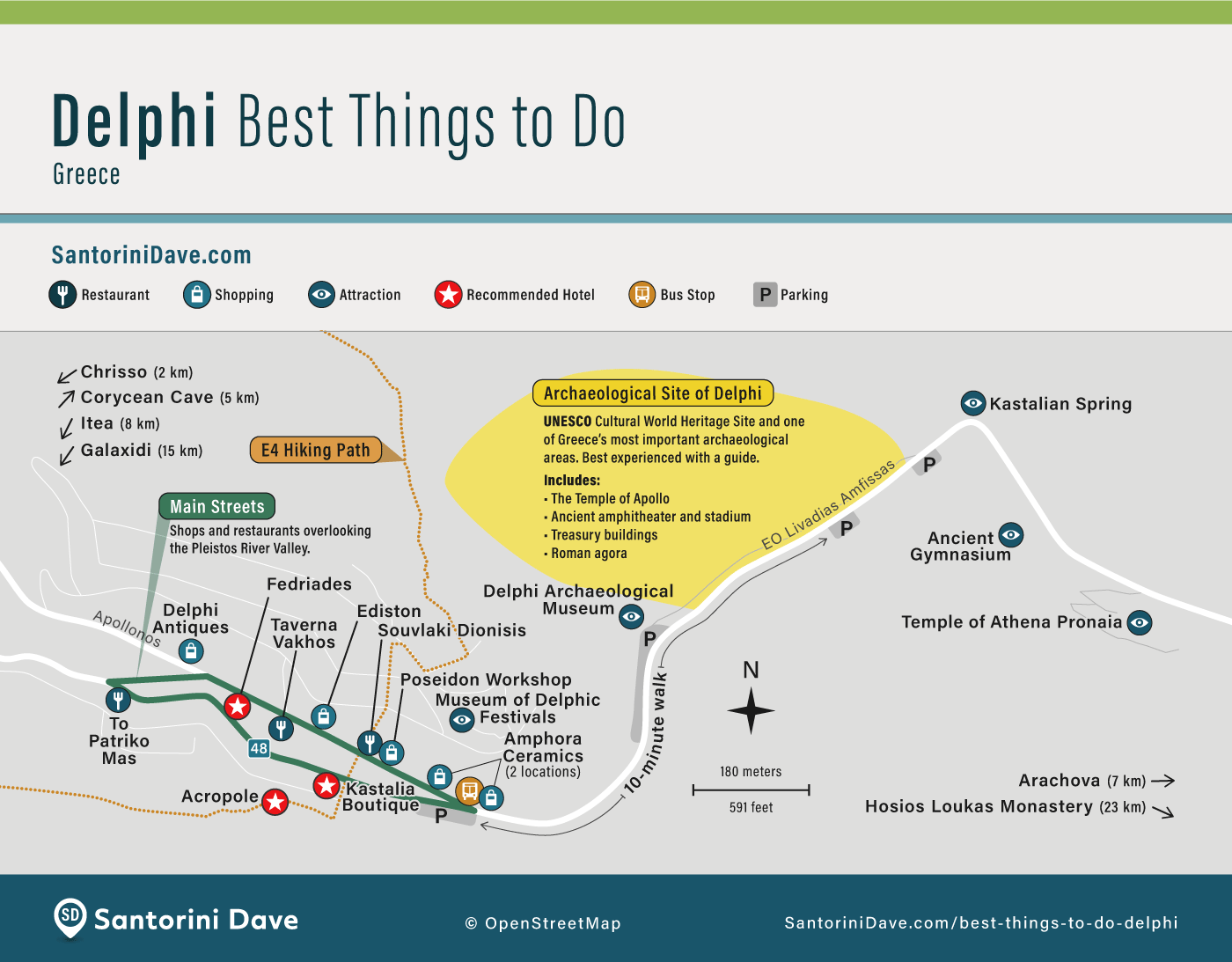
The 9 Best Things to Do in Delphi, Greece
1. Archaeological Site of Delphi
On a dramatic setting along the slopes of Mount Parnassos, this ancient complex and UNESCO Cultural World Heritage Site dates back to the 8th century BC and is considered to be one of the most important archaeological sites in Greece. Once considered the center of the world, the site’s Temple of Apollo drew important pilgrims from across land and sea to consult with the gods via the Delphic Oracle, delivered by the pythia (priestesses) who resided there. Aside from the Apollo Temple, the portion of the complex situated behind and above the museum also includes the well-preserved remains of an ancient amphitheater, gymnasium, and Roman Agora. There are signs throughout, but to get a fuller context of what you’re looking at, visit the museum before you go. Or better yet, take a guided tour of both. Plan to spend 2-3 hours at the site and museum (the cost of admission covers both), and wear comfortable shoes if planning to climb to the stadium on top.Summer Hours: Wednesday-Monday from 8am – 8pm (Last admission 7:40), Tuesdays 10am – 4pm; visit before 10am or after 4pm to miss the tour bus crowds. Winter Hours: (November-March) 8:30am – 3:30pm. Admission is €12, €6 for non-EU students and EU citizens over 65, free for EU students and all kids up to age 5. • Website
2. Archaeological Museum of Delphi
A wonderful collection in its own right, the Delphi Archeological Museum is a perfect complement to the archaeological site and a must-do while visiting Delphi. The museum is approachable and well-organized, housing important artifacts from the 2nd millennium BC to Late Antiquity; all sourced from the excavation. The museum’s most prized works include elaborately-carved friezes from the ancient buildings, and statues like the Kouroi of Delphi, the Naxian Sphinx, and the famous (and exquisitely detailed) bronze Charioteer. There’s a small gift shop and snack bar onsite, but better dining options are found in town – an easy 10-minute walk away. Admission to the museum also includes access to the archaeological site; we recommend visiting the museum first in order to get a better feel for the history and layout of the complex. Take a guided tour to get the most of your trip.Summer Hours: Wednesday-Monday from 8am – 8pm (Last admission 7:40), Tuesdays 10am – 4pm; visit before 10am or after 4pm to miss the tour bus crowds. Winter Hours: (November-March) 8:30am – 3:30pm. Admission is €12, €6 for non-EU students and EU citizens over 65, free for EU students and all kids up to age 5. • Website
3. Sanctuary of Athena Pronaia
Images of this small temple complex are what often come to mind when we think of “Delphi,” even though it is less historically significant than its more imposing neighbor down the road. The Sanctuary of Athena was often the first stop that pilgrims would make en route to the Oracle, and was a site of worship to the goddess of wisdom, fertility, and health. Its iconic circular Tholos (whose purpose remains unclear) is the best-preserved structure on the site, which also includes the ruins of two temples to Athena and two treasuries. Set against a majestic backdrop of of Mt. Parnassos on one side and a serene olive-grove-studded valley on the other, this temple complex is considered by many to be the most beautiful area of ancient Delphi, and is definitely worth the short walk it takes to visit.To get to the Sanctuary of Athena, head east on foot away from town and the Archaeological Museum, walking on the right (valley) side of the road. After about 10 minutes (800 meters), a sign will direct you to a gravel path going down to the ruins. Free. • Website
4. Museum of Delphic Festivals
A cozy and interesting collection, the Delphic Festivals Museum (also known as the Angelos and Eva Sikelianos Museum) is dedicated to the Greek-American couple’s efforts in the 1920s to commemorate Hellenic culture and revive the ancient Pythian Games that were once held at Delphi in honor of the god Apollo. The revived festival included athletic competitions as well as speeches, dramatic performances, folk exhibitions, and concerts, attracting notable attendees from across the world. The museum is housed in the Sikelianos’ onetime home, a serene Neoclassical villa that is perched above the main town with beautiful views of Mount Parnassos and the Amfissa valley.Generally open Friday to Sunday, 10am to 2pm, though it’s a good idea to call first (+30 2265 082175). Access the museum via stairs ascending from Delphi’s upper street, next to In Delphi restaurant. 10 minutes walk. Free.
5. Ancient Gymnasium
This ancient archaeological site and onetime athletic training ground isn’t open to the public anymore, but can be viewed from the main road just above. The site dates back to the 4th century B.C.; in its heyday the complex housed a gymnasium, palaestra, changing rooms, and baths – all of which were used by athletes competing in the Pythian/Delphic Games in the stadium above.Located below the main road into Delphi, and best viewed across from the entrance to the archaeological site. Free.
6. Kastalian Spring
A small but important site located just outside the main archaeological ruins, the Kastalian Spring was a site of ritual purification for all pilgrims to the Delphic Oracle, as well as the priestesses (pythia) who were agents of delivery for the mystic messages, the priests who translated them, and athletes competing in the Pythian Games. According to myth, it is the location where Apollo killed the Python dragon. These days there’s not much to see at the site itself, but it’s worth a stop to dip your hands into the cool mountain water and reflect on its historical importance.Located on the the north (mountain) side of the main road into Delphi, just east of the main archaeological site. Free.
7. Hiking
Delphi sits in a prime position for hiking, where the craggy slopes of Mount Parnassos meet the olive groves of the Amfissa Valley. The Corycian Cave, a mystical cavern located 5 km north of Delphi in Parnassos National Park, was an an ancient place of worship to the god Pan; nowadays, it’s the beginning of a regional stretch of the E4 hiking trail, which leads downhill through Delphi all the way to the Gulf of Corinth at Itea. The 13.7 km section of trail from the Corycian Grotto to Delphi is windy, steep, and hot in the summer – and best left to experienced hikers (take a taxi up and hike down). Those looking for a more gentle hike can follow the E4 trail downhill from Delphi, through the beautiful UNESCO-listed olive groves of Chrisso to the small port town of Itea. Either way, be sure to have good, sturdy shoes and plenty of water. Ask at the Delphi bus station or In Delphi restaurant for a hiking route map.Guided Delphi Hikes
• Guided Hike from Corycian Cave to Delphi
• Guided Tour from Delphi to Chrisso Olive Grove
• 4-Day Delphi Hike from Corycian Cave to Itea8. Local Shops
Both of Delphi’s main streets are peppered with shops that cater to tourists, but the best and most authentic shopping in is found along the upper road, Apollonos. Here are our favorite shops selling items that are a cut above the mass-produced products you’ll find elsewhere.
- Delphi Antiques: Carries a large selection of vintage textiles, as well as locally-sourced ceramic pottery, goat bells, tools, and antique home goods.
- Amphora Ceramics: Family-owned shop selling exquisite handmade and hand painted Greek pottery since 1978, most being museum copies from the Minoan through Classical periods. All works are created on-site in their Delphi studio, at which you can watch the artist at work. Amphora has two shop locations, very near each other on the upper road.
- Poseidon Workshop: Dimitris Georgaras sells handmade and oxydized cast-bronze chess sets and statues; most being copies of ancient museum pieces. If you buy here, carry your piece with you, as the shop’s shipping service is spotty.
- Ediston: Great little convenience store that sells a good variety of locally made products like juices, honey and olive oil, as well as local cheeses and freshly-baked bread.
9. Day Trips from Delphi
Not only an archaeological treasure trove, Delphi makes a great jumping-off point to explore the beautiful surrounding region, which includes Mount Parnassos and the Gulf of Corinth. Here are the best areas to explore near Delphi.
- Chrisso: A sleepy traditional village within walking distance from Delphi. Great for a quick excursion to explore the Neoclassical houses, small tavernas, and well-curated Folklore Museum. 6.5 km drive from Delphi.
- Arachova: Picturesque mountain village known as “Winter Mykonos” for its posh ski resorts. Even in the sleepy summer months, it’s worth a visit to stroll its charming stone-built lanes, climb the belltower to enjoy the magnificent view, and visit the local Ethnographic Museum. 12 km drive from Delphi.
- Itea/Kirra: Adjacent small harbor towns on the Gulf of Corinth. There are some nice sections of beach to be found here, and a promenade that spans the waterfront, dotted with outdoor restaurants. 17 km drive from Delphi.
- Galaxidi: Picturesque port town on the Corinthian Gulf with great shops and restaurants, beautiful Neoclassical buildings, and an interesting Maritime and Archaeological Museum. 32 km drive from Delphi.
- Hosios Loukas: Ornate 11th-century Byzantine monastery that’s a UNESCO Heritage site. 36 km drive from Delphi.
Read More
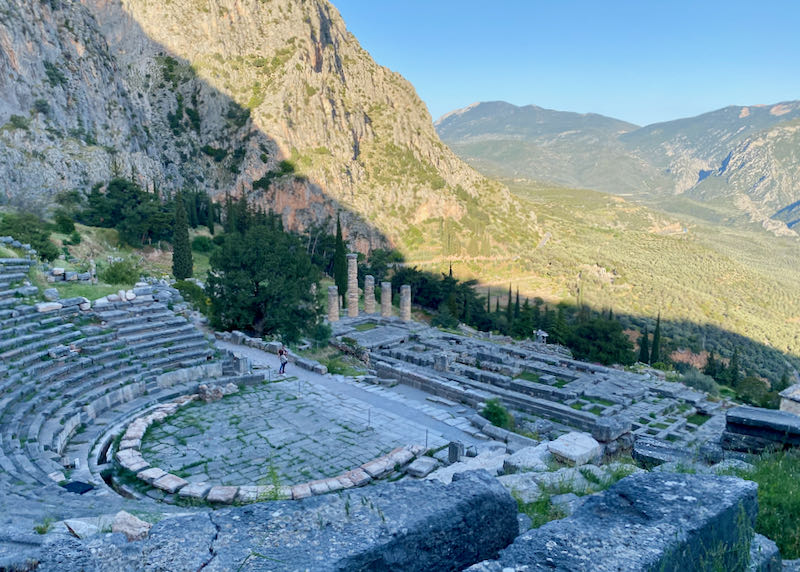
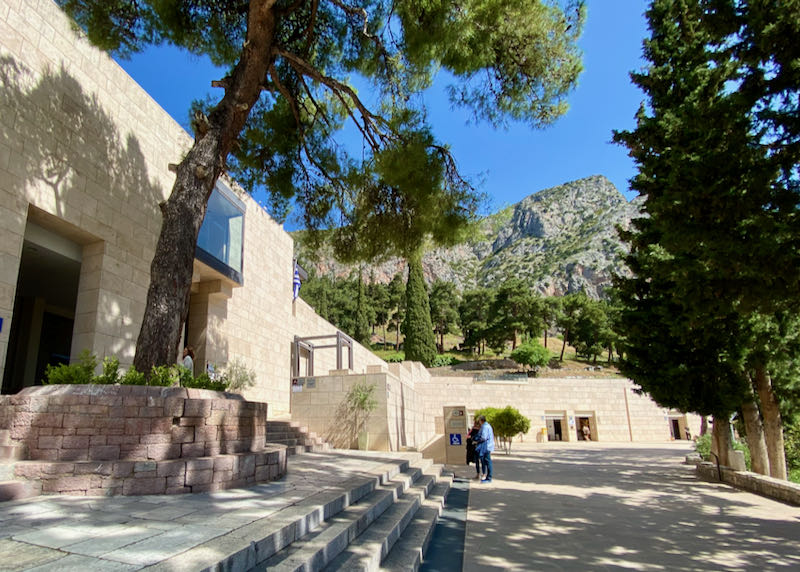
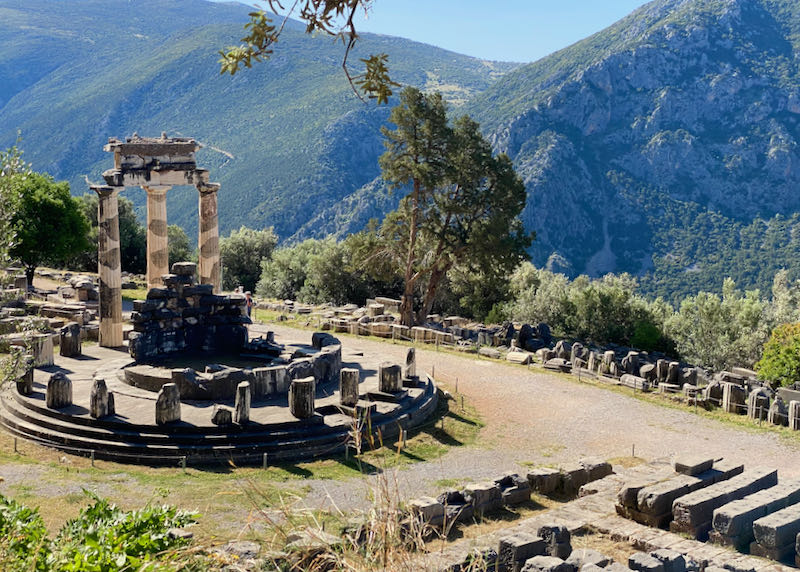
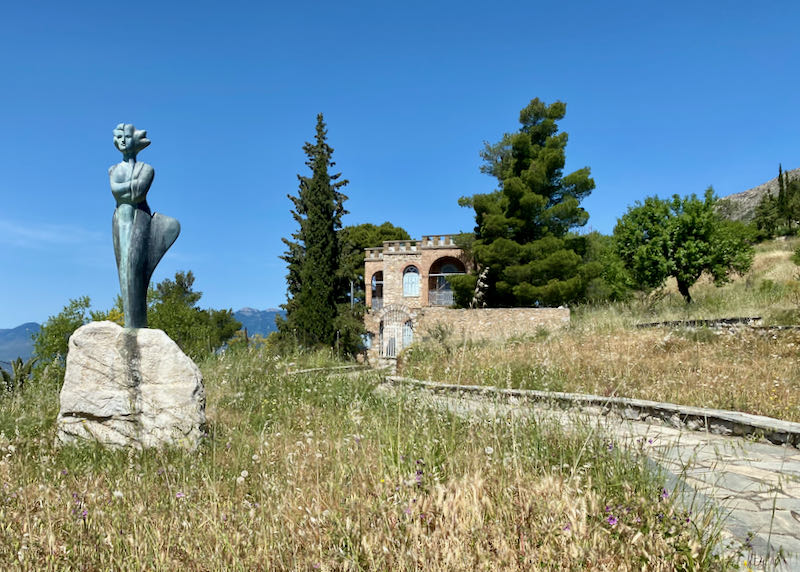
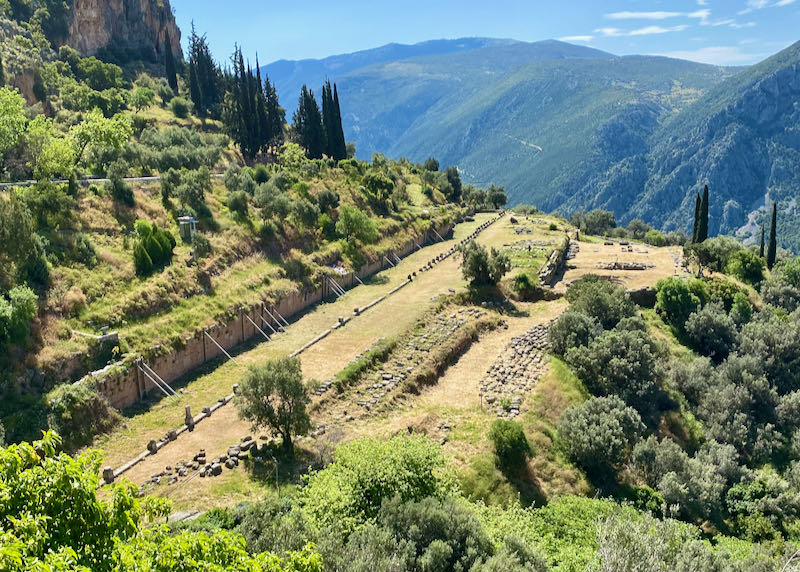
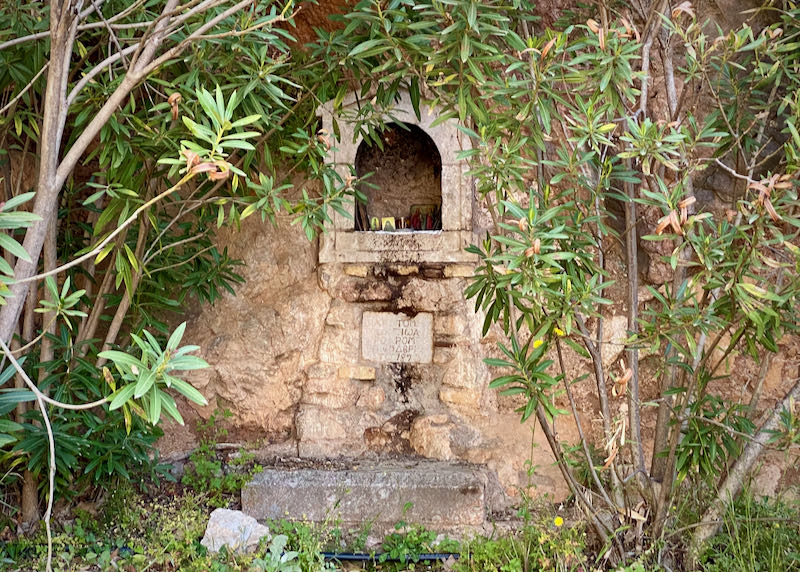
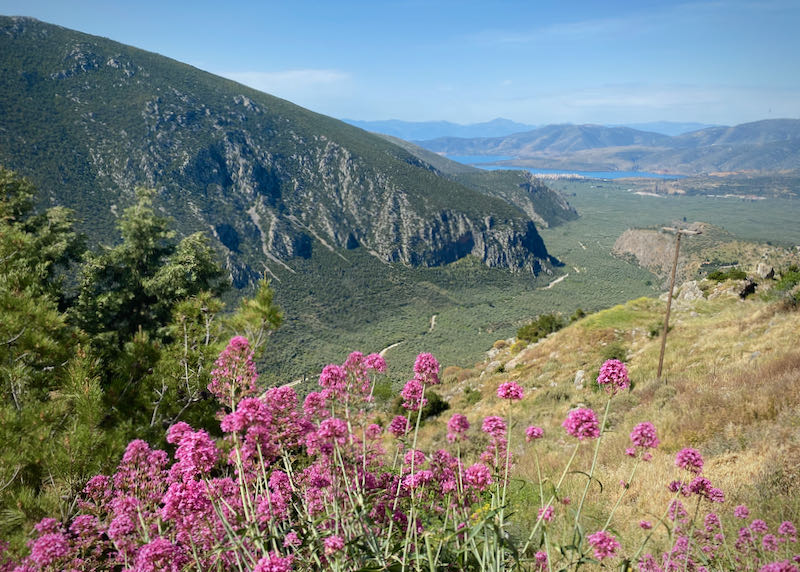
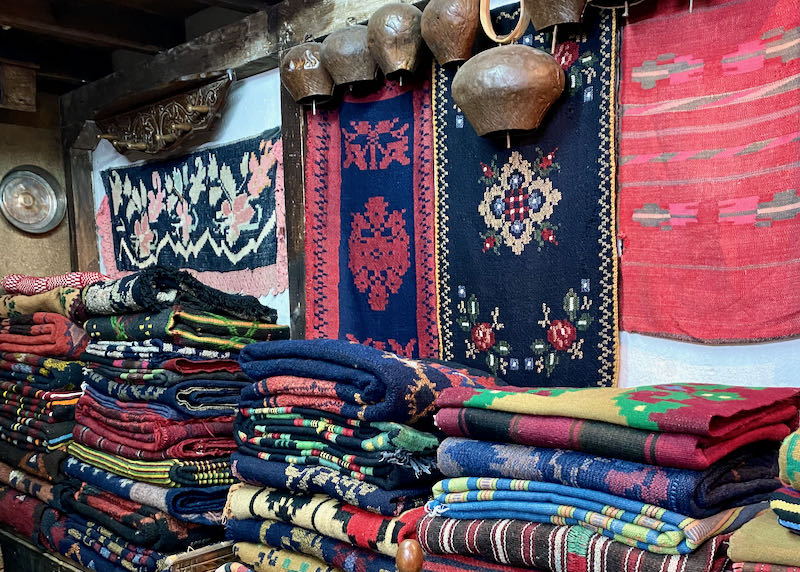
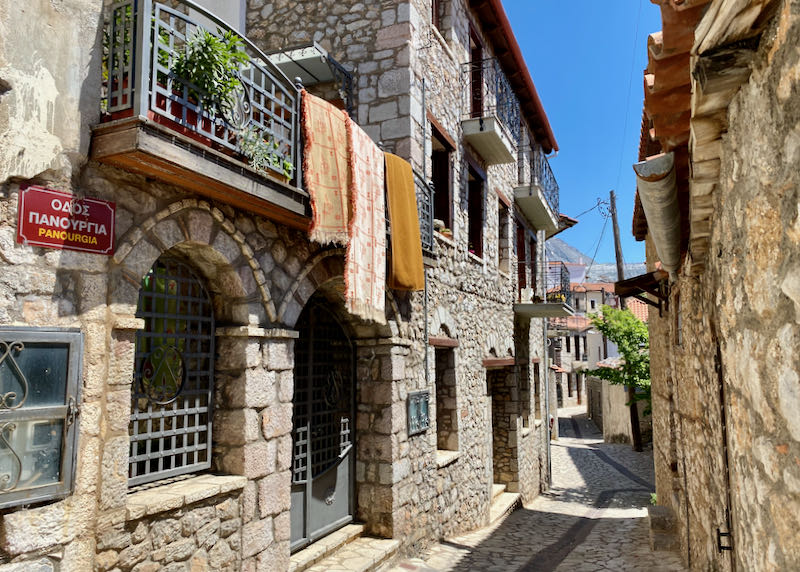
About Santorini Dave